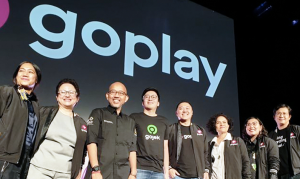Gojek launched its own streaming service, GoPlay, an application similar to Netflix to provide a solution to Indonesian viewers to have easy access to local films.
The service will focus on featuring original films and series created collaboratively with Indonesian production houses, offering opportunities for local filmmakers to get their work into the mainstream.
That way, filmmakers or content creators from Indonesia can easily channel their work to the wider public.
GoPlay was launched as a solution to make Indonesian quality films far more accessible, a company official said.
But unlike Netflix, GoPlay will only present film content from Indonesia.
It means there will be no Hollywood movies or TV series available on the streaming platform.
The company says there is a gap in current streaming services which does not allow people to get access to Indonesian high-quality content.
Goplay’s launch is to fill this gap and bridge the millions of Indonesian mobile viewers to the Indonesian film industry, an official of the company said.


Reuters says the launch of its Indonesian video platform sees the start-up, which is valued at S$10 billion based on its last round of fundraising in July, take on U.S streaming giant Netflix, Malaysian upstart Iflix, and Singaporean firm and Grab partner HOOQ in a fight for eyeballs in the country’s fast-growing video streaming market.
Gojek started in 2010 as a ride-hailing service. It introduced a one-stop app through which users can make online payments and order food and services such as massages.
It is now nursing ambitions for a larger share of the Southeast Asian market, where Singapore-based rival Grab currently dominates ride-sharing.
In September, Gojek launched a gaming platform in Indonesia in collaboration with Google and Chinese internet giant Tencent.
It says the potential in the Indonesian market is huge with roughly 130-140 million people using the internet in the country. -/TISG

